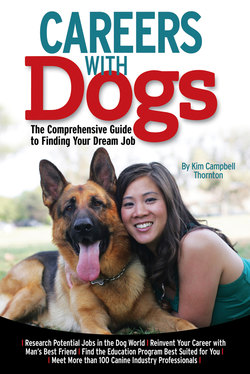Читать книгу Careers with Dogs - Kim Campbell Thornton - Страница 78
На сайте Литреса книга снята с продажи.
Military
ОглавлениеMilitary veterinarians may receive post-DVM training in such areas as public health, pathology, pharmacology, physiology, toxicology, food technology, and laboratory-animal medicine. They help improve animal-care systems in underdeveloped and war-torn countries. Like other government veterinarians, they are more likely to work with policy than pets.
Colonel Donald L. Noah, DVM, who has a specialty in veterinary preventive medicine, is a foreign-animal-disease diagnostician and an international expert on protecting animals and people against biological terrorism. In his job as acting deputy assistant secretary of defense for force health protection and readiness, he directs the development and implementation of policies and programs regarding deployment medicine, health protection, national disaster support, and medical readiness for 2.3 million service members. He frequently speaks on protection against biological terrorism to audiences of veterinarians, students, businesspeople, and government and military officials, stressing the role that veterinarians play in protecting the food supply and public health.
Some military veterinary jobs do involve direct contact with dogs and other animals. The U.S. Army Veterinary Service (AVS) offers career opportunities in public health and food safety and clinical practice. Members of the AVS help care for military working dogs, working animals for various Department of Homeland Security organizations, ceremonial horses, and pets owned by service members.
U.S. Air Force veterinarians serve as public health officers in the Biomedical Science Corps. Their job involves surveillance of disease trends, food-safety practices, and facility sanitation. At air force bases around the world, they manage programs to control occupational illness, food-borne disease, and communicable disease.
